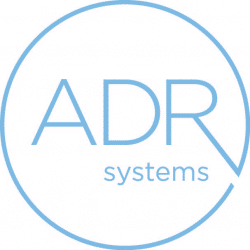Wondering if you should share your mediation submissions with the other side in commercial disputes? Read on. This article argues that both science and common sense support it when appropriate.
Parties often do not share submissions in commercial disputes because they are uncomfortable with the idea. “I think counsel worry that they are giving up some ‘edge’ over the other side by sharing submissions,” said Hon. Mitchell L. Hoffman, (Ret.), senior mediator and arbitrator at ADR Systems. “However, there is rarely any truly secret information that needs to be confidential. If parties express reluctance, I will suggest exchanging submissions but then having a separate submission that is confidential and given only to the mediator. Overall, I think both sides are better prepared for the mediation if they exchange submissions.”
Commercial mediators at ADR Systems agree with Judge Hoffman that many cases are primed for submission exchange, determined on a case-by-case basis. Let’s consider the deeper rationale for sharing submissions.
Scientific Support for Sharing Mediation Submissions
First Impression Bias
If parties do not share submissions, counsel and client are hit with the other side’s positions on the day of mediation. Scientific studies have shown that this may lead each side to unfairly evaluate the other’s position due to first impression bias.
First impression bias may occur when we make snap judgments. Without the time or the ability to process, we often rely on the first piece of information we receive. In a unique experiment at Duke University, researchers provided several items for participants to value. Those asked to place a value on the items on Day 1 overvalued their worth and were less likely to value them rationally. Those shown the items on Day 1 but asked for a value on Day 2 valued the items’ worth more fairly and rationally. Giving the participants more time to value the items was an antidote to first impression bias.
In like manner, sharing submissions allows each side to gather their thoughts and ‘sleep on it’ before the day of mediation. Given the opportunity to process the other side’s submission, counsel and their clients have time to reflect on and investigate the material, allowing for more thoughtful decisions on the day of mediation.
Having additional time to process a submission to make more rational decisions is supported by other scientific evidence. The concept of ‘sleeping on it’ has been studied frequently in the neurosciences. While sleeping, the brain uses our memory stores and works on a problem. This allows us to make more rational choices when we wake up. Those who ‘sleep on it’ are less prone to making errors and irrational judgments because of first impression bias. It follows, then, that parties are better prepared to evaluate positions and mediate successfully if they have access to the other side’s submission before mediation.
Emotional Bias
Learning of the other side’s positions on the day of mediation can also result in emotional – rather than rational – responses. Emotional responses can be triggered when confronted with challenges to our beliefs, such as when we deem a situation unjust.
To combat this emotional response, we need to give our rational mind time to respond. When we are more relaxed, we can think more productively. Putting time between reading a submission and the actual mediation has a calming effect, and it allows time to formulate more effective responses. This is another reason to exchange submissions well before the mediation: to give our rational mind more time to work on the issues that may have initially caused emotional responses.
The Common-Sense Support for Sharing Mediation Submissions
Efficiency
Most cases have a general settlement range. Sharing submissions promotes more efficient mediations because it gives each side notice of the ballpark settlement. Having this information before the mediation gives parties time to check and digest the figures rather than having to determine the credibility of the numbers on the day of mediation.
Submission exchange also has the potential to save time and money. Time is eaten up when mediators must go between rooms at the start of mediation just to deliver the numbers. If each side already has this information, true negotiations can begin earlier
Attorney Preparedness
When parties share submissions before mediation, attorneys are more completely prepared for the mediation.
“Exchanging submissions helps attorneys prepare for mediation because it puts all the issues to be addressed on the table,” said Hon. Elizabeth Budzinski, (Ret.), senior mediator and arbitrator at ADR Systems. “So, when the mediation begins, each party knows the other side’s position on all issues and less time is spent debating those issues. Issues raised for the first time in mediation only create delays. With well-informed parties, the mediator can focus on negotiating a settlement and precious time is saved.”
Additionally, the exchange process puts the relevant case law on the table and gives attorneys and the mediator time to digest it. If one side provides an obscure case, the mediation may need to break while the other side researches the case and determines its relevance. This is another poor use of time during the mediation.
Client Preparedness
Just as it is not a good idea for counsel to be surprised at mediation, clients do not like to be surprised either. Several mediators at ADR Systems have covered the topic of mediation client preparedness and client need-to-knows about mediation in depth. The mediation process is new to many clients, and they must be prepared to participate in the process. By looking at submissions in advance, attorneys have time to help their clients understand the approach they will take in mediation and the likely approach the other side will take.
The last thing an attorney needs on the day of mediation is a client who feels offended by the other side’s offer or has an emotional response to something the mediator brings back from the other side during caucusing. Common sense argues that it is better for the attorney to have the submission – both their submission and the submission from the other side — in hand when preparing their client for mediation. They can process the information together rationally rather than reacting to the information at the mediation. Again, time can be lost in mediation when it’s necessary to allow for a ‘cooling off period.’ Exchanging submissions helps clients be thoroughly prepared on the day of mediation.
Final Thoughts
There certainly are instances in which exchanging submissions may not be optimal. For example, if motions are pending in court or it looks like the mediation will fail and the parties will litigate anyway, then sharing submissions might not be the best approach. But in general, it is prudent practice.
Hon. Stuart Nudelman, (Ret.), senior mediator and arbitrator at ADR Systems, has been settling cases for nearly three decades and sums up the submissions-sharing question this way: “In my many years as a neutral, I have always encouraged parties to exchange submissions in good faith when appropriate. It reduces possible bias and erroneous evaluation of the other sides’ position, speeds up the negotiation process, gives parties time to emotionally process the information, identifies the issues to be discussed and helps both parties and their clients to prepare effectively for the session.” Judge Nudelman added, “It gives your mediation the best chance for success.”
Review our article on preparing a successful mediation submission.
…………
Hon. Elizabeth M. Budzinski, (Ret.) was a hard-working, meticulous and highly sought-after trial judge in the Circuit Court of Cook County for 20 years before joining ADR Systems as a senior mediator and arbitrator. She is skilled at bringing even the most recalcitrant parties to a resolution of their dispute. Attorneys who have settled cases with Judge Budzinski describe her as diligent, fair and someone who can keep the parties talking.
Request Judge Budzinski’s Availability
Hon. Mitchell L. Hoffman, (Ret.) has cultivated over 38 years of experience as a legal practitioner, having spent 21 of those years as a judge and 17 as an attorney. On the bench, he handled both Chancery and Law Division calls, settling many commercial and personal injury cases. Judge Hoffman is known for his detailed case preparation and analysis. He is fair and even-tempered and provides a calming influence during mediations.
Request Judge Hoffman’s Availability
Hon. Stuart A. Nudelman, (Ret.) is a senior mediator and arbitrator at ADR Systems. He is highly experienced in commercial, personal injury and complex construction matters, among many others. He has resolved more than 2,000 mediations and arbitrations throughout the United States in the past eight years.
View Judge Nudelman’s Full Bio
Request Judge Nudelman’s Availability
ADR Systems, It’s Settled.®




